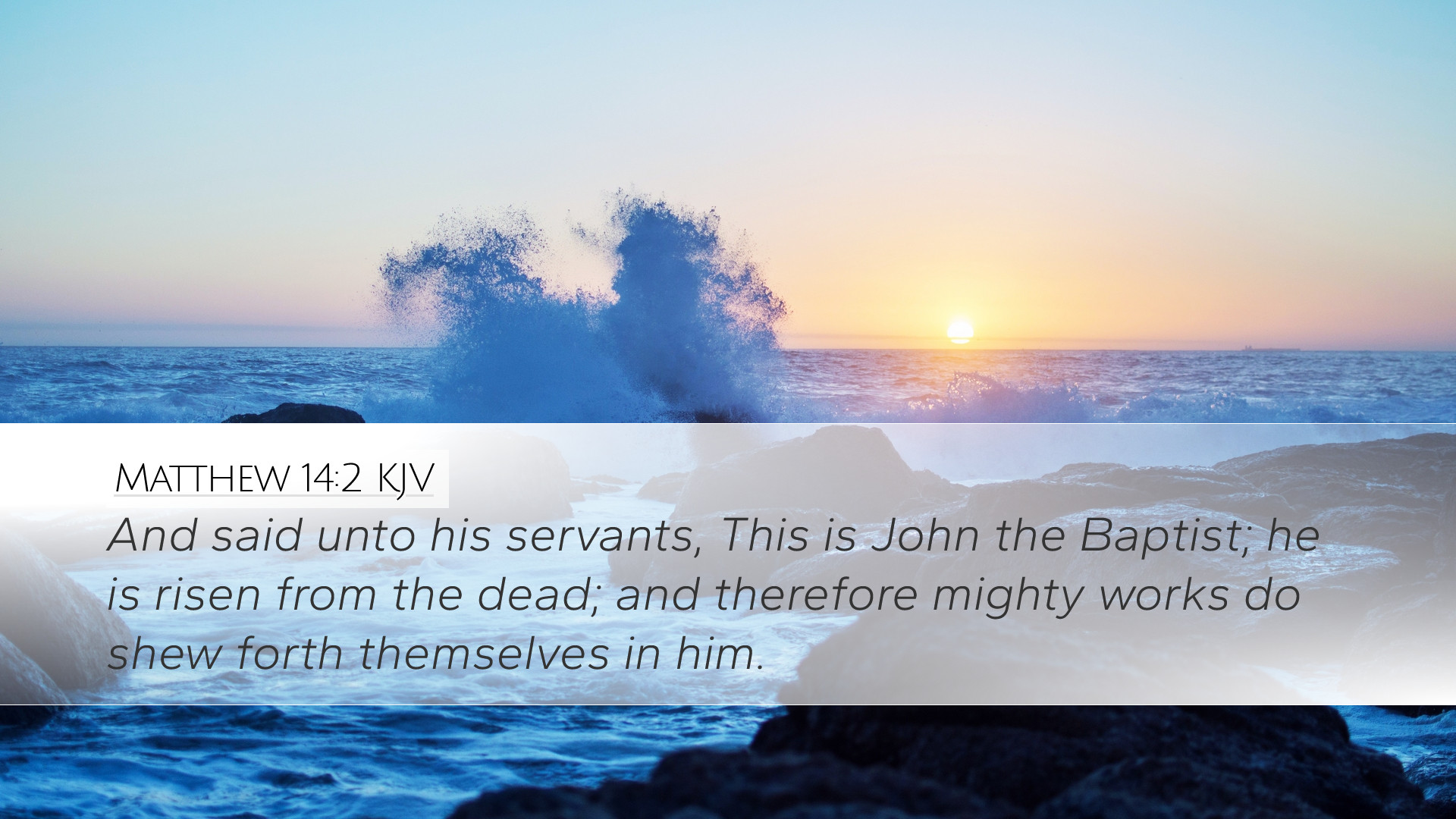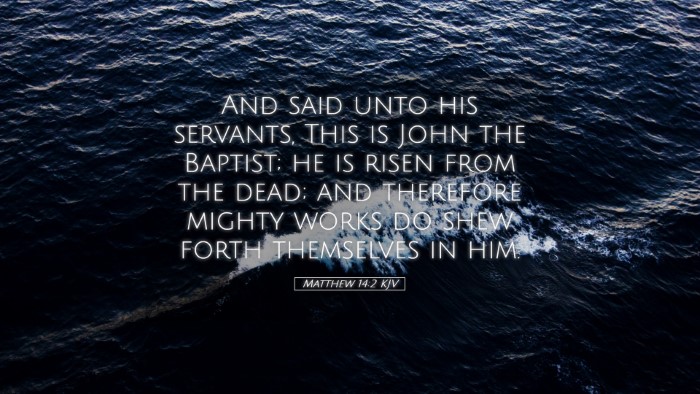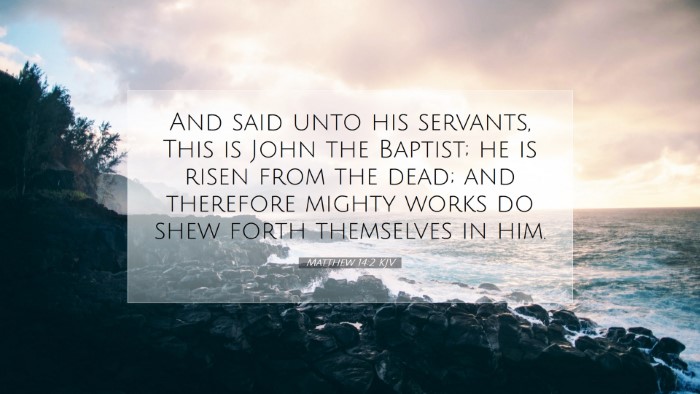Commentary on Matthew 14:2
Verse Context: In Matthew 14:2, we find King Herod Antipas reflecting on the ministry of Jesus, particularly regarding the miraculous works and teachings that had come to his attention. This verse sets the stage for understanding Herod's fears and the escalating tensions between his authority and the burgeoning influence of Jesus.
Understanding the Text
This verse reads, "And said unto his servants, This is John the Baptist; he is risen from the dead; and therefore mighty works do show forth themselves in him." Here, Herod expresses a troubled introspection as he grapples with the implications of Jesus' ministry. His identification of Jesus with John the Baptist reveals both his fear and his guilt over John’s execution.
Historical Context
The historical backdrop of this verse is critical. Herod Antipas had executed John the Baptist, motivated by a mix of personal vendetta and political intrigue (Matthew 14:1-12). This execution was a pivotal moment that not only signified the silencing of a prophetic voice but also set in motion a chain of events leading to the ministry of Jesus.
Insights from Public Domain Commentaries
Matthew Henry's Commentary
Matthew Henry emphasizes Herod’s recognition of Jesus as John the Baptist risen from the dead, illustrating his deep-seated guilt and fear. Henry notes that Herod's superstitious belief reflects his moral ambiguity and lack of repentance following his heinous act against John. He elucidates that Herod is haunted by the consequences of his previous actions, revealing that a guilty conscience can lead to irrational fears, as he associates Jesus' miracles with the resurrection of John.
Albert Barnes' Notes
Albert Barnes provides a thorough analysis of Herod's perception of Jesus. He highlights that Herod’s acknowledgment of Jesus as John the Baptist signifies more than mere superstition; it represents a moment of truth where Herod confronts the consequences of his sin. Barnes argues that the miraculous works attributed to Jesus reflect not just His divine authority, but also serve as a reminder of the prophetic role of John the Baptist. Each miracle performed by Jesus brought back memories of John's message of repentance and righteousness, which Herod had defiantly rejected.
Adam Clarke's Commentary
Adam Clarke approaches this verse with a focus on the psychological implications of Herod's statement. He notes that Herod, in many respects, is a ruler caught between his political ambitions and his moral failures. Clarke explains that the fear of John’s resurrection reflects not only Herod’s guilt but also his recognition of the power inherent in true prophecy and righteousness. The implication here is profound: when one acts against the truth, they cannot escape the repercussions, and Herod's fear is a testament to the potency of divine justice even in a temporal ruler's life.
Theological Reflections
This verse compels readers to reflect on the interplay of fear, guilt, and recognition of divine authority. Herod’s confusion and his misidentification of Jesus pose critical questions about the recognition of God's work in our lives. Theologically, the passage illustrates the tension between earthly authority and divine mission, serving as a reminder that God’s plans often challenge our worldly concerns and fears.
Christian Leadership Lessons
For pastors and church leaders, this scripture embodies several pivotal lessons:
- Awareness of Sin: Leaders must maintain a vigilant awareness of their own moral and ethical standings, understanding that unaddressed sin can lead to irrational fears and misguided actions.
- Response to God’s Voice: Like Herod, leaders may be tempted to ignore or silence prophetic voices. It is crucial to respond humbly to God’s leading, allowing for a culture of repentance and reflection within the ministry.
- Embracing Divine Authority: The passage highlights the need to recognize Jesus not just as a historical figure but as the authoritative presence in our ministries and lives. Leaders should measure their decisions against His teachings and work.
Practical Applications
In application, Matthew 14:2 can inspire church communities to engage in discussions about leadership accountability and the importance of maintaining a clear conscience before God. This verse also prompts individuals to consider how personal guilt and fear can affect their ability to discern God’s leading in their lives.
Conclusion
Matthew 14:2 serves as a poignant reminder of the complex dynamics between power, guilt, and recognition of truth. The insights from respected commentaries reveal the depth of this biblical account, inviting reflection on how we may respond to the powerful work of Christ in our own lives and ministries. In doing so, we are encouraged to cultivate hearts that are responsive to God’s voice, ensuring that our actions align with His will in humility and truth.


